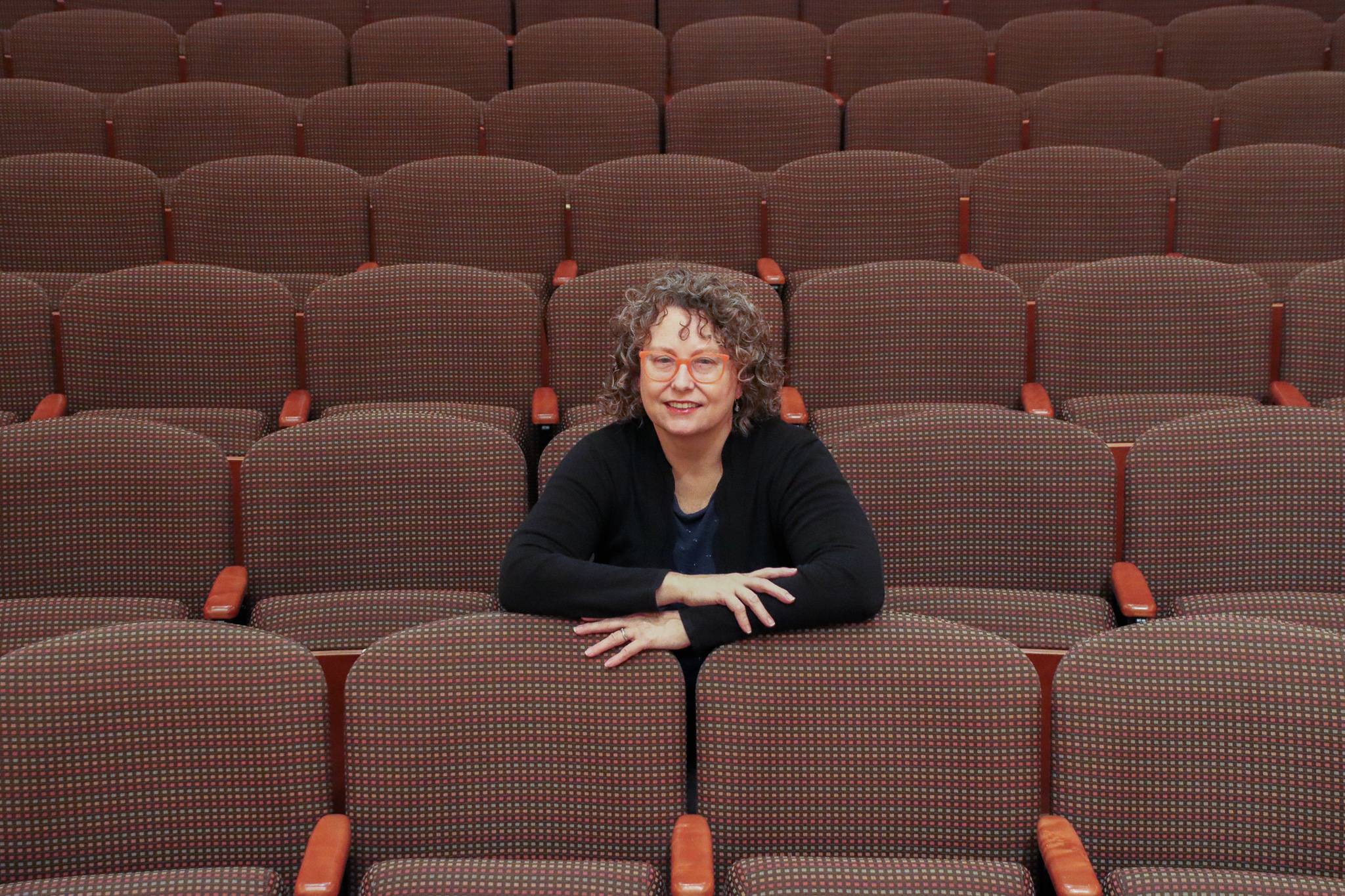By Tyler Quattrin
For The Diamondback
CLARIFICATION: This story has been updated to better reflect that Bradbury earned her master’s and doctoral degrees at Brown University before her master’s in economics at George Mason University.
Jill Bradbury acknowledges Deafness is essential to her identity. But it’s never limited her, she said.
“Did I ever stop and say, ‘Oh my gosh, I don’t know if I can do this because of my Deafness?’ No. Never,” Bradbury said. “That thought never crossed my mind. I was going to be a professor and that was it.”
The Brown University graduate made history in July by becoming the University of Maryland’s first full-time, tenure line deaf faculty member when she was named professor and director of this university’s theatre, dance and performing studies school.
She also became the first Deaf person to lead a university’s hearing theater or performing arts department in the United States.
[UMD faculty rights group rebrands, pushes for collective bargaining]
This university’s community has been very welcoming, Bradbury said. She also appreciates that many of her colleagues share her interest in making the department a leader in accessibility and inclusion in the performing arts.
“My hope is that … I can be in a position to help open up more opportunities for my colleagues in deaf theater who are amazingly talented,” Bradbury said.
Bradbury said she contracted meningitis at age four, which led to her hearing loss. She experienced mild to moderate hearing loss until she was 16, so she didn’t learn sign language growing up, she said.
But when Bradbury saw the film Children of a Lesser God in 1986, she said she was fascinated by the signing represented in the movie.
The film starred Marlee Matlin, a Deaf actress who won an Academy Award for her performance. Bradbury said Matlin’s sign language in the film inspired her to begin taking sign language classes at her local community college in San Diego at around age 14.
Bradbury earned undergraduate degrees in economics and English from the University of California, Irvine before pursuing her master’s in economics at George Mason University. Bradbury then completed her master’s and doctoral degrees in English at Brown University.
When she began teaching during graduate school, Bradbury said she struggled to lip-read her students. The reality made Bradbury learn sign language more seriously and get more involved in the Deaf community.
Bradbury said she joined a sign language club and spent a summer working at the Rhode Island School for the Deaf.
“That was very life-changing,” she said, “All of a sudden, I had this whole new community I didn’t struggle with understanding.”
Before coming to this university, Bradbury served as a professor and eventually English department chair at Gallaudet University in Washington, D.C., for 17 years. Bradbury later became a professor and performing arts department chair at the National Technical Institute for the Deaf at the Rochester Institute of Technology.
Throughout her career, Bradbury has focused on making theater more accessible to the Deaf and Deaf-Blind community. She has published extensively on the subject, including co-authoring a book about staging deaf and hearing theater productions.
Andy Head, a Rochester Institute of Technology assistant professor and Bradbury’s co-writer, said Bradbury is “very ambitious” and a groundbreaker in an email to The Diamondback.
“She is always coming up with ideas for big projects, and she really puts her whole self into pulling them off,” Head wrote.
[UMD continues partnership with Special Olympics for intramural sports program]
Emily Shallbetter, the guest experience coordinator at The Clarice Smith Performing Arts Center, said she’s led several of the center’s accessibility initiatives. Having Bradbury as a part of the staff has inspired other Clarice staff members’ drives to push for accessible services, according to Shallbetter.
“As soon as she came on board, we’ve hit the ground running,” she said. “The representation of disabled staff members and faculty makes a huge difference.”
Moving forward, Bradbury is working to integrate captioning into the set design of the department’s productions.
Bradbury said next April’s production of the children’s musical Hip Hop Anansi will feature integrated captioning due to the efforts of theatre, dance and performing studies graduate student Timothy Kelly.
Kelly had been working on the show’s integrated captioning before Bradbury’s arrival.
Creatively captioning the performance is a central part of Kelly’s thesis, he said. The graduate student has worked closely with Bradbury throughout the process to get her perspective, they added.
Kelly said Bradbury’s addition has led many within the department to reflect on the accessibility of day-to-day functions.
Kelly is excited about Bradbury’s vision to improve the department as well as her energy and joy, he said
Bradbury organized an event at The Clarice last Thursday that brought together deaf artists to discuss ways to increase the number of deaf and hard-of-hearing actors in the region, Bradbury said.
“By bringing this group together and starting this conversation, we’ll be able to create more opportunities for deaf and hard-of-hearing theater makers and designers down the road,” Bradbury said.



